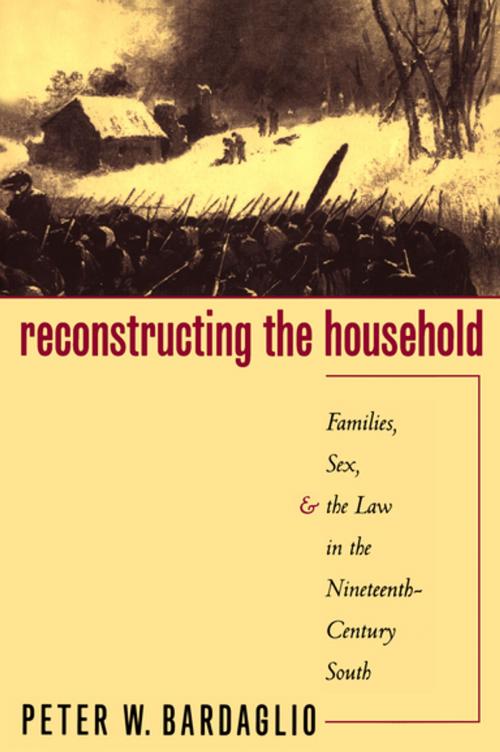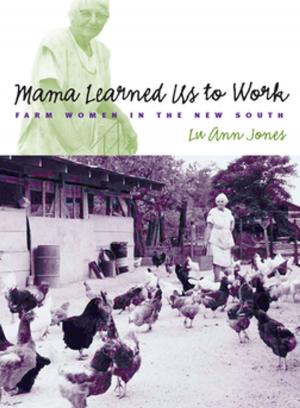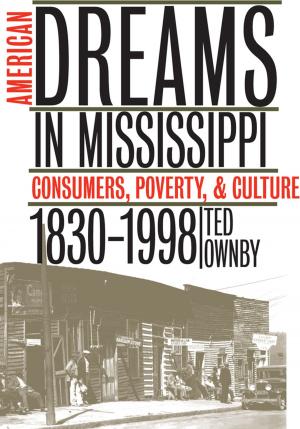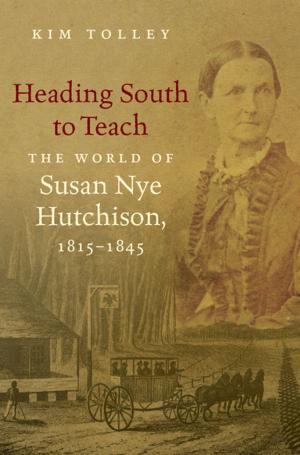Reconstructing the Household
Families, Sex, and the Law in the Nineteenth-Century South
Nonfiction, Reference & Language, Law, Legal History, History, Americas, United States, 19th Century, Social & Cultural Studies, Social Science, Sociology| Author: | Peter W. Bardaglio | ISBN: | 9780807860212 |
| Publisher: | The University of North Carolina Press | Publication: | November 9, 2000 |
| Imprint: | The University of North Carolina Press | Language: | English |
| Author: | Peter W. Bardaglio |
| ISBN: | 9780807860212 |
| Publisher: | The University of North Carolina Press |
| Publication: | November 9, 2000 |
| Imprint: | The University of North Carolina Press |
| Language: | English |
In Reconstructing the Household, Peter Bardaglio examines the connections between race, gender, sexuality, and the law in the nineteenth-century South. He focuses on miscegenation, rape, incest, child custody, and adoption laws to show how southerners struggled with the conflicts and stresses that surfaced within their own households and in the larger society during the Civil War era. Based on literary as well as legal sources, Bardaglio's analysis reveals how legal contests involving African Americans, women, children, and the poor led to a rethinking of families, sexuality, and the social order. Before the Civil War, a distinctive variation of republicanism, based primarily on hierarchy and dependence, characterized southern domestic relations. This organic ideal of the household and its power structure differed significantly from domestic law in the North, which tended to emphasize individual rights and contractual obligations. The defeat of the Confederacy, emancipation, and economic change transformed family law and the governance of sexuality in the South and allowed an unprecedented intrusion of the state into private life. But Bardaglio argues that despite these profound social changes, a preoccupation with traditional notions of gender and race continued to shape southern legal attitudes.
In Reconstructing the Household, Peter Bardaglio examines the connections between race, gender, sexuality, and the law in the nineteenth-century South. He focuses on miscegenation, rape, incest, child custody, and adoption laws to show how southerners struggled with the conflicts and stresses that surfaced within their own households and in the larger society during the Civil War era. Based on literary as well as legal sources, Bardaglio's analysis reveals how legal contests involving African Americans, women, children, and the poor led to a rethinking of families, sexuality, and the social order. Before the Civil War, a distinctive variation of republicanism, based primarily on hierarchy and dependence, characterized southern domestic relations. This organic ideal of the household and its power structure differed significantly from domestic law in the North, which tended to emphasize individual rights and contractual obligations. The defeat of the Confederacy, emancipation, and economic change transformed family law and the governance of sexuality in the South and allowed an unprecedented intrusion of the state into private life. But Bardaglio argues that despite these profound social changes, a preoccupation with traditional notions of gender and race continued to shape southern legal attitudes.















